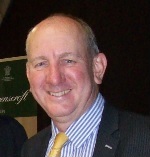Dr Andrew Rothwell of the Shared Services Research Group at Loughborough University’s School of Business and Economics shares his thoughts on making shared services work, based on 10 years of research in the UK and across the world.
My interest in “making shared services work” comes from involvement with the shared services research group at Loughborough University. I’m fascinated by how work and organisations are changing, how jobs and professions are changing, and how we can work more efficiently and effectively in the future.
In the workshop I’m co-presenting with Andy Shenstone of Capita plc at UUK’s 3rd Annual Efficiency in HE Conference on 27 March, I’d like to explore “making shared services work” from three points of view. First, what do we know already about shared services in UK higher education? Second, what can the HE sector learn from shared services evolution in other organisations? Finally, what of the future? What do we need to explore, resolve or discover?
First things first: universities are not novices in this field.
The UK’s higher education sector has its own unique take on shared services and outsourcing which is quite distinctive to that found in other organisations from the private and public sectors. This perspective is long established, well developed and part of our everyday operations: UCAS, JISC and a range of shared services in facilities management are just some examples, as well as cost sharing groups and collaborative approaches to procurement. Equally interesting are ‘high-road’ technology-based shared resources such as the Manufacturing Technology Centre. I’m convinced that we haven’t yet begun to see all the possibilities for shared services in higher education.
Can the higher education sector learn from other organisations?
Our 10 year research project at Loughborough University has enabled us to work with a wide range of organisations. While there is no one typical example, there are many issues in common. These include:
- marketing the shared service internally and externally;
- performance managing shared service organisation, the individuals within it, and developing service level agreements;
- the development of new working practices, new roles and new professional structures;
- effectiveness and efficiency: one version of the truth, one front door, vision and leadership;
- transformational leadership and high levels of engagement, supported by effective change management.
Issues and concerns from our partner organisations have also included talent management, developing integrated shared services, and potential implications for careers and professional progression people for working in the shared service centre. This is often a consequence of the hollowing out of the professional space between individuals handling transactional work on one hand, and senior professionals in the business partner level on the other. Once again however I suspect that we haven’t yet begun to see all the possibilities!
So, what of the future?
My aspiration for the workshop is that we are able to explore some of the unanswered questions in relation to making shared services work. So, for example:
- What are the barriers to progress that HE institutions experience and how can these be overcome?
- Are there new potential areas that have yet to be explored? This might include high-level research collaboration, alluded to only last week in the times higher education supplement.
- Are there places that, as a sector, we dare not go? We are quite happy for our personal financial transactions to be handled by an overseas business service centre, but would we be happy for transactional aspects of student records or registry to be handled by an overseas (and potentially outsourced) organisation?
- How can the challenges posed by the changing higher education landscape be turned into opportunities? We may not quite get to the ultimate answer on how to make shared services work, but we hope to set an agenda for discussion.
Finally, keep an eye on the Efficiency Exchange for further posts on this topic and for details of forthcoming forum events. As the saying goes: “May we live in interesting times”!
Dr Andrew Rothwell is a member of the Shared Services Research Group at Loughborough University’s School of Business and Economics. He is co-presenting the ‘Making shared service work’ workshop with Andy Shenstone of Capita plc at the “Working for a smarter, stronger sector: the 3rd annual Efficiency in HE conference” at Woburn House on 27 March 2014.








